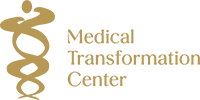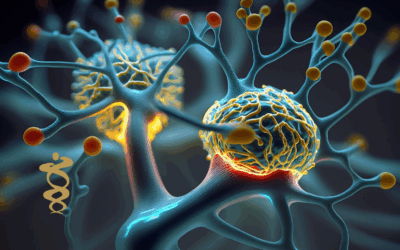Fertility struggles can be a deeply emotional and stressful experience for couples trying to conceive. While many factors contribute to infertility, genetics play a significant role in shaping reproductive outcomes. Advances in genetic research have enabled us to better understand the key connections between our DNA and fertility, empowering couples to address their unique challenges with targeted, science-backed strategies.
How Genetics Affects Fertility
Single Nucleotide Polymorphisms (SNPs): Tiny Changes, Big Impact
Our DNA is made up of millions of combinations of nucleotides, which act as genetic “building blocks.” Sometimes, a single nucleotide changes in a gene, creating what’s known as a Single Nucleotide Polymorphism, or SNP (pronounced “snip”). While SNPs are common and typically harmless, certain genetic variants can predispose individuals to conditions that may impact fertility.
A prime example is the MTHFR gene. This gene is responsible for producing an enzyme that regulates methylation, a process critical for DNA repair, detoxification, and hormone regulation. Variants in the MTHFR gene are associated with reduced enzyme activity, which can lead to:
- Elevated homocysteine levels
- Poor egg and sperm quality
- Increased risk of miscarriage and fetal developmental issues
For example, a single mutation at the genetic level, like cytosine (C) being replaced by adenine (A), may alter your body’s ability to metabolize folate (Vitamin B9). This can result in risks such as clotting issues, implantation challenges, and pregnancy complications.
Epigenetics and Fertility
While your genes provide the blueprint for your body, epigenetics determines how those genes are expressed. Epigenetics involves environmental and lifestyle factors that turn genes “on” or “off,” and it has a profound impact on reproductive health.
For instance, the APOE genotype, which influences lipid metabolism, is linked to oxidative stress and inflammation when expressed in certain ways. These factors can impair reproductive function in both men and women. By adopting epigenetic strategies, such as:
- Following an anti-inflammatory diet
- Supplementing with omega-3 fatty acids
- Maintaining a healthy lifestyle
…it may be possible to positively influence gene expression and improve fertility outcomes.
Addressing MTHFR Variants to Enhance Fertility
For individuals with MTHFR gene mutations, targeted interventions can mitigate the negative impact on fertility. Recommendations often include:
- Methylated Folate and B Vitamins
Supplementing with bioavailable methylated B vitamins ensures the body gets the necessary nutrients even when absorption is compromised. Methylfolate, in particular, is more easily processed by individuals with MTHFR SNPs.
- Reducing Oxidative Stress
Consuming antioxidant-rich foods and supplements can help combat oxidative damage, promoting better reproductive health.
- Balancing Homocysteine Levels
Keeping homocysteine within a healthy range is crucial for preventing blood clot risks and supporting fetal development.
By combining the right nutritional support with advanced supplementation (such as IV therapies or capsules rich in methylated nutrients), individuals can effectively address the challenges posed by MTHFR SNPs.
The Power of Personalized Fertility Solutions
One of the most exciting aspects of modern fertility care is the shift toward a personalized, integrative approach. Gone are the days when genes were seen as immutable. Today, we understand that genes are not destiny. By considering both genetic predispositions and epigenetic factors, couples can significantly alter their reproductive trajectory.
The Benefits of Epigenetic Interventions
- Enhances cellular efficiency and function
- Reduces risks associated with genetic vulnerabilities
- Provides sustainable, natural solutions for improving fertility
- Supports both male and female reproductive health
This approach recognizes that small changes in diet, lifestyle, and supplementation can add up to create a profound positive impact on fertility.
Genetics, Fertility, and Hope for the Future
For couples facing infertility, understanding the role of genetics can provide much-needed clarity and a path forward. From SNPs like those in the MTHFR gene to the broader influence of epigenetics, modern science offers powerful tools to address underlying issues impacting reproductive health.
The most important takeaway is this: Your genes don’t define your fertility future. By uncovering genetic insights and applying epigenetic strategies, you can take control of your reproductive health and improve your chances of achieving a successful pregnancy.
If you’re ready to start your personalized fertility transformation, consider seeking out genetic testing and expert guidance. Armed with the right information, you can support you





